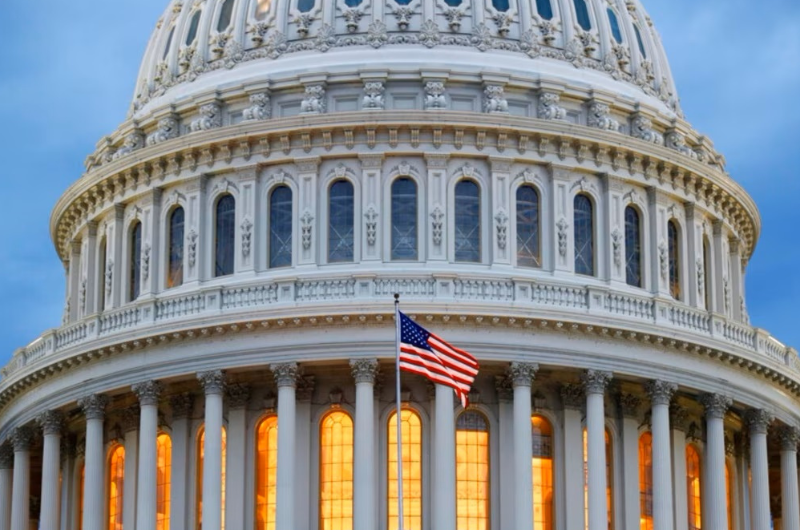


Supporters are raising their voices in opposition to two devastating bills — one placing heavier liability on credit unions regarding elder financial abuse in California, and another in Congress that would make unfavorable changes to the credit card interchange system. But more messages to lawmakers are needed!
Ask CA Lawmakers to ‘Oppose SB 278 Unless Amended’
A couple weeks ago, the California Credit Union League asked credit union leaders and supporters to engage on Senate Bill 278, a bill dealing with elder financial abuse authored by State Senator Bill Dodd (D-Napa). California credit union supporters have sent more than 1,720 messages to California assemblymembers — but more messages from credit union supporters are needed.
The bill’s committee hearing has been pushed back, so NOW is the time to double-down and continue to push the message of opposition to SB 278 in the California State Assembly (unless the bill is amended).
Please have staff, board volunteers, and members send a message through Connect For The Cause! For those who’ve already sent a message, please send a second one.
SB 278 details:
Ask Congress to Oppose Credit Card Interchange Bill
S. 1838 and H.R. 3881 (the Credit Card Competition Act) would severely impact credit unions and their members by changing the credit card interchange system. The California and Nevada Credit Union Leagues do not want to see consumers and credit unions losing out to big retailers, so please MAKE YOUR VOICES HEARD by sending a pre-written letter to your two senators and member of Congress, urging them to stand up for local credit union members by opposing this legislation.
So far, more than 8,330 messages have been sent to Capitol Hill from California and Nevada credit union supporters — part of the more than 20,000 sent from advocates nationwide.
The Leagues — in conjunction with the Credit Union National Association (CUNA) and fellow state leagues and associations — told congressional leaders in the U.S. House and Senate this past week that, far from increasing credit card competition, the interchange bill would hurt consumers and small businesses while benefitting big box retailers.
Meanwhile, CUNA also wrote to members of Congress in advance of restaurant industry lobby visits to Capitol Hill this past week, telling lawmakers that the current credit card interchange system “works.” It was anticipated these restaurant lobby visits would support the interchange bill that’s strongly opposed by the Leagues, CUNA, and fellow state leagues.
Here are key facts to remember as you spread the word with employees, volunteers, and credit union advocates:
The Credit Card Competition Act (CCCA) of 2023 is substantively identical to the CCCA of 2022, but with two notable changes:
Under the current CCCA, the Federal Reserve would issue regulations requiring credit card issuers with more than $100 billion in assets to include at least two unaffiliated networks on which an electronic credit transaction can be processed. Additionally, the two networks cannot be the networks holding the two largest market shares of credit cards issued in the United States by licensed members of such networks (as determined by the Federal Reserve Board of Governors at the time the regulations are issued).
More information can be found on the cost of data breaches, how interchange fees protect consumers from data breaches, and the economic impact of amending interchange regulations by visiting the Interchange Works: Protect My Card site.
During the week of June 12 – 16, CUNA and organizations representing the entire financial services industry wrote House leaders in strong opposition of the interchange bill (H.R. 3881). The letter follows a similar one sent by the organizations to Senate leaders last week.
CUNA, along with the American Bankers Association, Association of Military Banks of America, Bank Policy Institute, Consumer Bankers Association, Defense Credit Union Council, Electronic Payments Coalition, Independent Community Bankers of America, Mid-Sized Bank Coalition of America, National Association of Federally-Insured Credit Unions, and National Bankers Association signed the letter.
2855 East Guasti Rd., Suite 202
Ontario, CA 91761
909.212.6000
1201 K. St., Suite 1050
Sacramento, CA 95814-3992
916.325.1360
c/o Great Basin FCU
9770 South Virginia Street
Reno, NV 89511-5941
202.638.5777 www.cuna.org
www.dfpi.ca.gov
Clothilde “Cloey” V. Hewlett — 415.263.8500
fid.state.nv.us
702.486.4120 (Las Vegas)
775.684.2970 (Carson City)